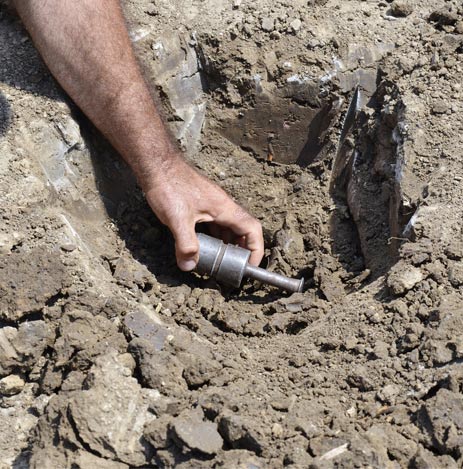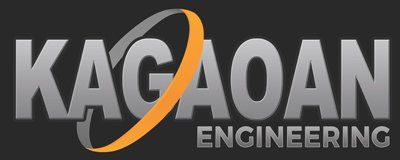Soil Lab Testing
Soil Lab Testing for Index Values and Classification - NYC, Manhattan, The Boroughs, Nassau County, Suffolk County, Long Island, and New Jersey - Kagaoan Engineering

Index Value and Classification Soil Testers
Knowing what comprises the ground on a particular lot is important for building and manipulating the earth. Geotechnical engineers, farmers, builders, and construction teams use soil testing to help them decide which projects are viable. They can also determine what to expect when digging on the lot or erecting a structure. This information can help builders determine whether a property can withstand certain weight loads or designs for bridges, farms, buildings, roadways, and more.
Our team of professionals at Kagaoan Engineering includes a variety of geological and geotechnical engineers. A broad range of experience and skills gives our team the ability to analyze the soil, classify it, and develop an appropriate course of action for project proposals. We can collect soil samples, test the material, and provide a detailed report for project engineers, architects, developers, and construction heads. To find out more about our services, please call Kagaoan Engineering in New York at 516-208-1533.
Contact us
for free consultation.
What is Soil Classification?
Naming soil types gives engineering professionals a way to standardize the results of soil tests. They use this information to help everyone in the construction, design, and engineering teams understand how much support the soil offers for foundations. These specialists also use the information to detail findings about how the ground might move during excavation or construction. Farmers and community planners use this classifying technique to figure out whether a particular area can support a building design or agricultural venture.
Soil Indexes
Many index values are useful for geotechnical and geological engineering purposes. Some of these indexes include moisture level, plasticity, and consistency. Grain size is another identifying marker for soil classification. These types are called the Atterberg limits when one defines how the soil changes with water amounts. For example, how the soil flows when changing from a solid earth pack to a liquid mud is one way to test these limits or consistency changes.
Plasticity
- Zero means no plastic properties
- Less than seven means slightly plastic
- Seven to seventeen is medium plastic properties
- Greater than seventeen classifies the soil as extremely plastic
Liquidity
This classification uses the water levels in the soil to determine how fluid the ground pack is and what it will act like when under loads or when digging. The formula to get these levels uses the plasticity index and water content to determine the maximum loads or changes the soil can undergo before it reaches levels where changes occur.
Consistency
This figure is how wet or fluid the soil sample is and uses the plasticity and water content to derive the numbers. For example, a level of 0 or a negative number means the ground is in the watery state or liquid.
Soil Classification Types
There are primarily three soil types the U.S. uses to name earthen materials. They also give these soil types an index value according to their composition. The three types are:
- Large rock materials like gravel or sand particulates
- Small minerals like clay and silt that compact
- Organic content
OSHA says each digging project must not begin until soil classification is complete. They require a specific type to determine whether shoring the ground or using retaining walls and other excavation protections are necessary for the project. These classes include:
- Stable boulders or rocks - Ground that will not move when crews are digging
- Class A - Sturdy earth packs that can withstand as much as one and a half tons of compression and 25 pounds of horizontal force per square foot
- Class B - Unreliable rock packs or soils that can handle compression up to class A standards of one and a half tons per square foot
- Class C and Class C-60 - wet earth packs and ground types that have 60 to 80 pounds per square inch of pressure in a lateral direction
Who needs lab Testing for Classification of Soil?
Any project where the ground is going to undergo digging or someone plans to build on a lot needs testing. Farmers also use this information to help them figure out whether the earth will support a particular crop. For example, hard pack clay is not conducive to growing crops like sandy or loamy soil packs. Community leaders use this information to help them decide the best areas for wildlife preserves, community farms, parks, and other recreational areas.
Long-term preservation of the soil is another concern for landowners. Property owners use these soil classes to determine what state the soil is in for the growth of new plants and trees. For instance, a Christmas tree grower might use soil testing to figure out if the land where they want to plant young trees is viable for growth. Indexing and classifying soils helps prevent ground erosion in areas where land movement is a problem.
Kagaoan Engineering is a Leader for Lab Testing for Classification of Soil
- Decades of engineering experience
- Wide range of specialists on hand to collaborate with project heads
- Ability to head excavation or building projects from start to finish
- Exceptional customer service for our clients in Suffolk County, Long Island, New York, Connecticut, Manhattan, and New Jersey
- Budget oversight to keep projects on track
- In-depth knowledge of the permit process
- Experience with boring samples, soil classification, design, and many other engineering tests and services
- Ability to monitor and track foundation changes, soil movement, and adjacent building stability
To find out how our experienced team of engineers can help with your soil indexing and classifying, please call us at 516-208-1533.
Please contact us
today!
About Kagaoan Engineering
Every member of Kagaoan Engineering is an experienced professional who brings distinct strengths and specialities to the company. We work together as team to ensure that your project has the skill sets required to succeed.
Copyright 2017 The Kagaoan Engineering. All Right Reserved. Art Commercially Licensed by Shutterstock.

